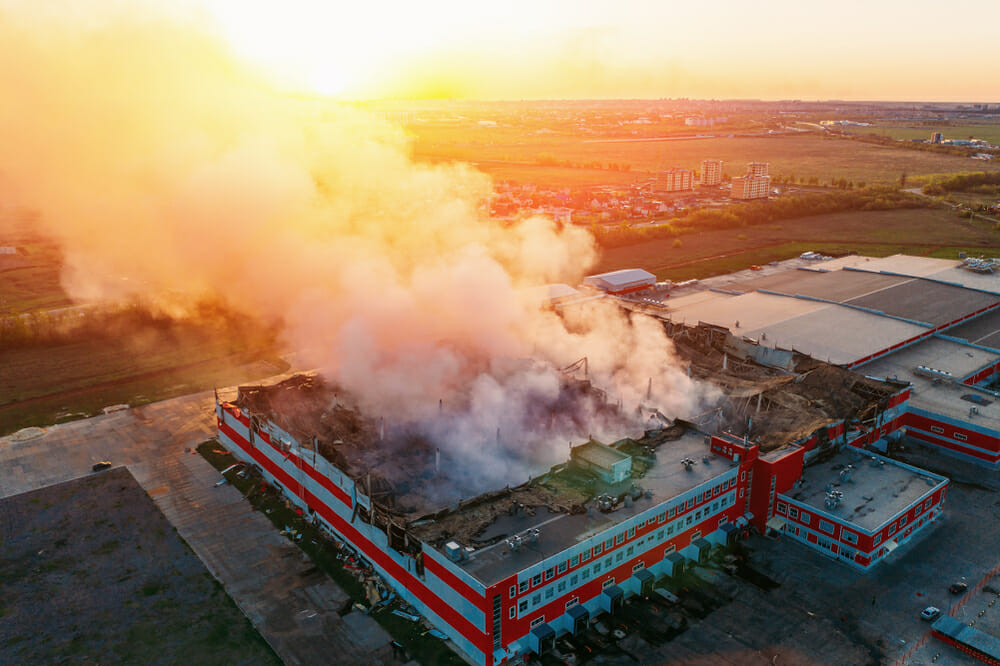Introduction to Contents Adjusting
Ever felt tangled in the complex web of insurance claims following a property damage incident? While the language of policies bruise your brain, stress boils up, turning a laborious process into a nightmare. This anguish and confusion is the very challenge that propels us, the team at Insurance Claim Recovery Support, to provide relief. Our secret weapon? The ‘Contents Adjuster’.
A contents adjuster is an unsung hero who frees property owners like you from the labyrinth of insurance claims following a disaster. Through a specialist skill set that combines evaluation, negotiation, and arduous attention to detail, a contents adjuster ensures property owners secure a fair amount for their losses.
Understanding the Role of a Contents Adjuster
In the chaos following property damage, owners don’t just lose a building, but also the numerous objects housed within — their ‘contents’. Enter the contents adjuster, the professional who evaluates these losses, shining a light on the tunnel of reimbursement.
Contents adjusters navigate the terrain of claims adjusting with a sole focus—estimating the value of personal or business contents lost in an incident. They do this by managing a ‘pack-out’ (sorting salvageable and unsalvageable items), scoping the total loss contents and creating photograph catalogues and videos to support their evaluations.
The Importance of Contents Adjusters in the Insurance Industry
In the insurance juggernaut, contents adjusters play a key role. These professionals ease the pain points for property owners by ensuring a just settlement for their losses. Their work is vital to the claim’s outcome and acts as a critical bridge between policyholders and insurance companies.

To sum it up:
- Contents adjusters are specialists in assessing the value of contents lost due to property damage.
- Their primary tasks include managing the pack-out, scoping, cataloguing, and creating videos of losses.
- They act as a crucial link between policyholders and insurance companies, ensuring a fair settlement.
- Their role in the insurance industry is essential in navigating the complexities of insurance claims.
The Path to Becoming a Contents Adjuster
As we’ve seen, a contents adjuster plays a critical role in the insurance industry. Their expertise in handling personal and business contents losses is vital in ensuring a fair settlement for policyholders. So, how does one become a contents adjuster? The process involves a mix of education, soft skills, training, and certifications.
Educational Requirements and Skills Needed
The minimum educational requirement for becoming a contents adjuster is typically a high school diploma or GED. But, having a degree in insurance, finance, or a related field can give you an edge. What truly matters, however, is your understanding of insurance policies and regulations, as well as your ability to handle claims effectively. This understanding can be obtained through a pre-licensing course and passing the state exam. Such courses, offered by various claims adjuster training schools, impart comprehensive knowledge about insurance policies, regulations, and claim handling procedures.
In addition to formal education, certain soft skills are crucial to excel as a contents adjuster:
- Self-discipline: Being able to maintain a strong work ethic and stay self-motivated is important as you’ll often be working independently.
- Project Management: The ability to multitask and handle multiple claims simultaneously is key.
- Computer Skills: Proficiency in specific adjuster software programs is necessary.
- Organization and Attention to Detail: These skills ensure accuracy and prevent costly errors.
- Communication Skills: Clear and effective communication is essential for daily interaction with claimants and other stakeholders.
Certifications and Training for Contents Adjusters
Once you’ve met the educational requirements and honed your soft skills, the next step is to obtain your adjuster license. This process varies by state, so you should understand the specifics of your state’s regulations.
In addition to your license, being proficient in industry-standard claims writing software, like Xactimate, is critical. This software is widely used by adjusting firms, and learning to use it effectively is key to successfully closing claims. There are training courses, like the Tactical Xactimate Training offered by AdjusterPro, that can help you acquire these skills.
Lastly, consider obtaining carrier certifications. These are often required to work claims for specific insurance companies. Carrier certifications validate your knowledge and skills, making you more attractive to potential employers. We at Insurance Claim Recovery Support encourage our adjusters to obtain such certifications to enhance their career prospects.
So, as you can see, the path to becoming a contents adjuster involves a combination of education, soft skills, software proficiency, and relevant certifications. In the next section, we’ll explore the day-to-day responsibilities of a contents adjuster.
The Day-to-Day Responsibilities of a Contents Adjuster
The role of a contents adjuster is multifaceted and challenging, with each day bringing unique tasks and responsibilities. Here, we delve into the two primary facets of a contents adjuster’s role: investigating and evaluating contents losses, and working closely with policyholders.
Investigating and Evaluating Contents Losses
One of the primary responsibilities of a contents adjuster is to conduct a thorough investigation of the claimed property damage. This process involves in-depth reviews of the policy language and the evidence provided by the policyholder.
The adjuster conducts physical inspections and assessments of the damage to match up losses with the appropriate property coverages. They create a meticulous documentation of each aspect of the claim, including photographs and videos, to negotiate effectively for a fair settlement demand. This role requires a keen attention to detail and a comprehensive understanding of insurance policies and regulations.
At Insurance Claim Recovery Support, our adjusters are trained to manage this process efficiently, ensuring a detailed and objective assessment of the contents loss.
Working with Policyholders: The Importance of Customer Service
A key aspect of a contents adjuster’s role is to interact directly with policyholders. They act as a point of contact between the insurance company and the policyholder, ensuring that the interests of the latter are represented effectively.
The adjuster guides policyholders through the complex and often stressful insurance claims process. They need to be empathetic, patient, and possess excellent communication skills. Policyholders may be dealing with significant personal and financial stress, so the adjuster’s sensitivity and professionalism can make a significant difference.
At Insurance Claim Recovery Support, our adjusters understand the importance of providing an exceptional level of customer service. Our team is committed to supporting policyholders at every step of the claim process, ensuring they receive a fair and prompt settlement.
In conclusion, the role of a contents adjuster is demanding yet rewarding. It requires a balance of technical knowledge, attention to detail, and interpersonal skills. In the next section, we’ll delve into the challenges and rewards of being a contents adjuster.
The Challenges and Rewards of Being a Contents Adjuster
Contents adjusting is not a career for the faint-hearted. It’s a demanding role that requires a strong sense of commitment, the ability to handle high-stress situations, and a deep understanding of the insurance industry.
Stress and Burnout: The Dark Side of Claims Adjusting
The nature of the job places adjusters at risk for high-stress levels and burnout. Handling a heavy workload, dealing with difficult claimants, and making tough decisions can lead to chronic stress. As one Reddit user shared, the office environment can sometimes be challenging, especially when management creates unnecessary conflicts for their amusement (source: Reddit).
It’s important for contents adjusters to take care of their mental health. At Insurance Claim Recovery Support, we emphasize the importance of self-care and maintaining a healthy work-life balance. Taking time to unwind, pursuing hobbies, and ensuring a healthy lifestyle can significantly help in managing stress levels.
The Satisfaction of Helping Policyholders in Their Time of Need
Despite the stress and challenges, being a contents adjuster also has its rewards. One of the most significant rewards is the satisfaction derived from helping policyholders in their time of need. After a damaging event, policyholders are often overwhelmed and unsure of how to proceed. As a contents adjuster, you have the opportunity to guide them through this difficult time, helping them understand the claims process, and ensuring they receive a fair settlement.
As quoted from a Reddit user, “I began to smell it periodically as my wife became sick. She died late last year, and now, I’m alone for the first time in more than half a century. Now, I smell it every day, and it feels like an invitation.” This powerful quote highlights the hardships people face when dealing with property loss and the emotional impact it has on them.
This is where a contents adjuster can truly make a difference. It’s not just about evaluating property damage and calculating insurance claims. It’s also about providing emotional support, understanding, and empathy. It’s about helping people rebuild their lives after a disaster.
In conclusion, the role of a contents adjuster is both challenging and rewarding. It requires resilience and a strong commitment to helping others. But for those who thrive in high-pressure situations and derive satisfaction from helping others, it can be a deeply fulfilling career.
The Future of Contents Adjusting: Outsourcing and Technology
As we move further into the digital age, the nature of contents adjusting is evolving. The emergence of new technologies and the trend of outsourcing certain aspects of the insurance claim process are reshaping the landscape of this profession.
The Role of Companies like Enservio in Contents Claims Services
Companies like Enservio are revolutionizing the way contents claims are managed. Instead of leaving policyholders to navigate the complex process of listing details about every damaged or lost article, third-party companies are stepping in to provide specialized contents claim services.
Enservio, for instance, offers services that help policyholders through the process of recreating a list of items in their home or office that were lost or damaged due to a disaster. This helps to alleviate the stress of the situation and ensures a more thorough and accurate claim. As a result, policyholders receive the full benefits they are entitled to under their policy.
At Insurance Claim Recovery Support, we recognize the value these services bring to our clients. They not only simplify the claim process but also ensure a fair and prompt settlement of contents claims.
How Technology is Changing the Landscape of Contents Adjusting
Technology is playing a significant role in the evolution of the contents adjusting profession. New software and digital tools are making it easier for contents adjusters to manage and process claims.
For instance, artificial intelligence (AI) and machine learning algorithms can help streamline the claims process, automate repetitive tasks, and reduce human error. Databases and digital inventories can simplify the process of cataloging lost or damaged items, while mobile apps and online platforms can facilitate communication between adjusters and policyholders.
At Insurance Claim Recovery Support, we leverage these technologies to provide our clients with efficient and effective service. We understand the complexities of insurance claims and are committed to using the latest technology to simplify this process for our clients.
In conclusion, the future of contents adjusting is promising, with technology and outsourcing offering innovative solutions to the challenges of the profession. Whether you are a policyholder navigating a claim or an adjuster looking to improve your practice, these developments are worth keeping an eye on.
Working as a Contents Adjuster in Texas: A Case Study
Navigating the insurance claim process in Texas can be complex. As a contents adjuster, understanding the intricacies of this process is essential to ensure a smooth and efficient claim resolution for policyholders. Let’s delve into what this process looks like in the Lone Star State.
Understanding the Texas Insurance Claim Process
In Texas, contents adjusters play a critical role in the insurance claim process. They are responsible for inspecting property damage, determining how much the insurance company should pay for the loss, and making tough decisions that can significantly impact the claim outcome.
The process begins with an initial investigation of the claim, which involves inspecting the damages, documenting them, estimating repair costs, and interpreting policy language. The adjuster then meets with the insurer’s representatives, reviews police or fire reports, speaks to witnesses, and talks to property owners.
The adjuster’s goal is to assist policyholders in meeting their burden of proof and ultimately negotiate a fair settlement. Throughout this process, the contents adjuster is responsible for compelling insurers to perform their duties and ensuring that all visible and hidden damage is accounted for in the claim.
Dealing with Fire and Storm Damage Claims in Texas Cities
In Texas, contents adjusters face various challenges depending on the nature of the property damage and the location. For instance, in Austin and Dallas, adjusters frequently handle claims related to hail and tornado damage. The aftermath can include assessing toppled buildings and uprooted trees.
In coastal cities like Houston and San Antonio, adjusters deal with damage caused by hurricanes and subsequent flooding. This requires understanding the complexities of windstorm and hail damage insurance, which many businesses purchase separately from their standard commercial property insurance.
In West Texas cities like Lubbock and Waco, wildfires pose a significant threat. Here, contents adjusters need to be knowledgeable about different types of fire damage and the appropriate methods for assessing and documenting such damage.
In each case, the role of the contents adjuster is crucial. With their expertise in evaluating and documenting losses, they can ensure that policyholders receive the compensation they deserve. At Insurance Claim Recovery Support, we’re committed to making the insurance claim process as smooth and stress-free as possible for our clients. Our team of skilled property damage insurance claim adjusters is ready to assist policyholders in navigating these complex processes and advocate for their rights to a fair and prompt settlement.
In conclusion, working as a contents adjuster in Texas can be challenging due to the diverse weather conditions and associated risks. However, it is also a rewarding role that allows you to help policyholders in their time of need. Whether you’re an aspiring contents adjuster or a policyholder seeking assistance with your insurance claim, understanding the Texas insurance claim process is crucial to achieving a favorable outcome.
Conclusion: Is a Career as a Contents Adjuster Right for You?
Deciding to become a contents adjuster is a significant career choice. It’s not just about acquiring technical expertise or mastering the ins and outs of insurance policies. It’s about embracing a role that impacts people’s lives directly, helping them recover from unexpected property damage and return to normalcy.
The career of a contents adjuster is both challenging and rewarding. It demands not only an understanding of insurance policies but also strong negotiation skills, customer service, and a knack for problem-solving. The job can be stressful, given the multiple cases often handled simultaneously and the pressure to make swift decisions. At the same time, it can be incredibly satisfying to know that your work directly helps policyholders in their time of need.
As a contents adjuster, you become a vital player in the insurance industry. You help ensure that policyholders receive the fair compensation they deserve for their lost or damaged items. Your work involves not just assessing damage but also managing the complex aspects of insurance claims to secure the most favorable settlement possible for policyholders.
At Insurance Claim Recovery Support, we acknowledge the significance of competent contents adjusters. As policyholder advocates, we manage the complex aspects of insurance claims, working towards the most favorable settlement possible for policyholders. Our aim is to support and aid you using our expertise and in-depth understanding of the industry’s inner workings.
So, is a career as a contents adjuster right for you? If you’re someone who enjoys problem-solving, has great attention to detail, and has a genuine desire to help others, this could be a rewarding career path.
Becoming a contents adjuster is not just about assessing damage – it’s about helping policyholders navigate through challenging times. If you’re ready to take up this challenging yet rewarding role, start your journey by engaging in proper training and gaining the necessary certifications. And remember, continuous learning is key to providing the best service to your clients.
In the end, your knowledge, skills, and commitment can make a significant difference in the lives of those recovering from property damage. As a contents adjuster, you can be the beacon of hope that guides policyholders through the often overwhelming world of insurance claims.







